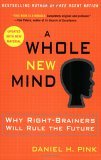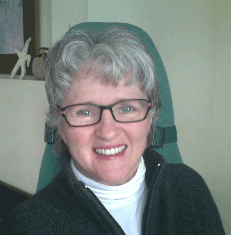We use the term "right brain" to refer in a general way to those brain systems responsible for regulating our ability to interpret, navigate and thrive in the world.
Tips for right brain therapy
To optimize counseling, you need to work from both the left and right sides of the brain.
Counseling that includes the following strategies and treatment modalities gives you the best chance of making fundamental changes because they engage the right brain in the process:
Being in the Here and Now
You've probably had a "moment" in your life. You know, a moment of awareness, of being totally in the here and now. Well, you were in your right brain. Our present moments are right brain based. That's because all our sensory information comes through the right brain.
It's the right brain that gives us that sense of being connected to one another. It's called the relational right brain for a good reason. From PET scans and neuroimaging technology, we have learned that the right brain regulates or influences many aspects of our behavior. And, it's often those aspects that we're trying to change through psychotherapy.
Those things often have to do with our relations and connections with others:
- Self-awareness,
- Empathy,
- Identification with others,
- Trust,
- Emotion,
- Non-conscious communication,
- Attachment and,
- Recognition of emotional faces.
Other right brain functioning includes visuo-spatial recognition (imagery), autobiographical memory, stress modulation and holistic thinking. The right side of the brain also has an integrative map of the body.
The right brain in counseling
When you're in counseling it's often useful to understand the role that the right brain plays in the process. Because it's the center for processing emotion and of our sense of identity, it has a huge influence on how we feel about ourselves and how we manage our relationships.
Modifying the habitual patterns of feeling and behavior that are "encoded" in the right brain is the primary goal of all therapies, although many don't say this explicitly. But because these changes can be made more readily in a working relationship with the right therapist, we suggest a new approach to counseling.
Right brain therapy
Let me give you an example of how a right brain approach might work in counseling.
Terry is the kind of guy that you have trouble reading. When he speaks there's very little emotion in his voice so you can't always tell when he's upset. He also tends to hold the space until he's finished his "monologue".
He was telling an acquaintance about the time that he had to speak in front of his fourth grade classmates and parents at an awards ceremony. He described who attended (his folks, Granny, Uncle Joe and Daniel, his buddy who lived at the end of his street . . . the world essentially), what he had to say (the honour, the gratitude . . . big concepts for a little tyke), and he smiled slightly as he recalled being grateful that day was over.
His version of the event, as he spoke to the guy, was essentially an objective description of his experience. There was little tension in his voice. We could describe his thoughts and reflections as a product of left brain functioning.
If he were relating this story in his counseling, he would describe verbally what happened and how he felt, but with his counselor's help he would also try to experience the same emotions and body sensations that occurred back then, moment by moment.
For example, he might feel his stomach tighten, his heart pound, and all the other sensations that he experienced on that day.
His counselor might draw his attention to these sensations, encouraging him to recall the experience as it was actually lived, moment by moment (i.e. to use his right brain's capacity).
To deepen his learning the psychotherapist might encourage him to visualize (i.e. using a right brain strategy) how he would have liked the event to unfold.
He replayed the "reconstructed" event moment by moment in his imagination. As he did so, his body relaxed. Reflecting on it later, he felt a little less intensely about this event than before.
The right brain defined.
We use the term "right brain" to refer in a general way to those brain systems responsible for regulating our ability to interpret, navigate and thrive in the world. In particular, these systems also determine the quality of our relationships with others, including the ability to form secure emotional attachments.
Technically speaking, the right brain encodes the implicit procedural memories which accumulated in the earliest years of life, well before the analytical left brain came online.
Developmentally....
Not all areas of the brain are online when we are born. What's significant is that areas in the right hemisphere become active in the first two years of life, whereas the left hemisphere doesn't come online fully until 18 months to two years. Although the right brain develops first before any verbal or conceptual ability appears, an intense amount of learning happens in those first years.
We learn about ourselves and the world through direct experience, not through words. Our experiences, especially with our caregivers, will be encoded in procedural memories that form the basis of our emotional life.
Perhaps the most important characteristic of procedural memories is their non-conscious operation. Analysis, thought, and language are all conscious operations of the mind and are characteristic of "left brain" abilities, whereas the influence of the right brain occurs largely outside of our awareness.
This is the achilles heel of psychotherapies that take a verbal, investigative approach to personal change. The procedural memories that fundamentally condition our emotional lives are laid down long before the rational mind appears and are unaffected by intellectual efforts to change them.
Only by recreating as much as possible the initial conditions in which the procedures were encoded can these deep neural structures be modified.
This is the primary insight of somatic therapy.
Which side is dominant, the left brain or the right?
Note that both concepts are fictions--there is no such thing as a right brain, separate and independent of a left one. They are not in conflict, nor is one "superior" to the other. For example, when you're having a conversation, your left brain will focus on the meaning of the words exchanged, while your right brain will observe whether the other person gets what you're saying.
We use the terms "left brain" and "right brain" to refer to the two basic ways the brain processes information. Thus, when we say that someone is "in their right brain" it simply means that they are processing their experience in a holistic, "big picture" way.
In fact, no one functions on one side or the other all the time, as you will see. It's just that distinguishing these two brain functions helps you to understand how some counseling techniques work and why they are effective.
Counseling and the Right Brain
This is why we emphasize an understanding of the crucial role of the right brain on myShrink. It turns out that we're born already wired for connection, and we strive for it from the very beginning. Without connection with another person (another brain), the brain literally can't grow. That original connection has consequences, good and bad, that can persist for a lifetime.
Most importantly for counseling, it means that if you want to change the deep, non-conscious patterns that determine your reactions to life's events you need an attuned connection with another person. In effect, you need to recreate the original conditions (as much as possible) in which those patterns were laid down in the past.
And there's no one better equipped to take you through this process than a professional counselor who has worked hard in their own therapy to develop a high level of integration and empathy. That enables the right therapist to create an environment where it's safe to feel and stay with your emotions and body sensations (i.e. affect regulation) as you explore them in your sessions.
Why right brain-based counseling is important
The right hemisphere is dominant in the first three years of life; it's the first to mature, before the left brain. Emotional experiences, especially those involving caregivers, are unconsciously stored and processed in the right brain during those first years.
What gets encoded is an ability to handle social relationships as well as knowledge and expectations about how others will react to our efforts to communicate and connect.
The right brain is central for counseling because it regulates all the crucial conditions for establishing a successful therapeutic relationship: attunement, empathy, resonance, sense of safety, and unconscious communication and processing.
So when we talk about brain plasticity, "rewiring" the neuropathways, and restoring healthy, implicit self-regulation, we're referring to the right brain.
Although you don't need to know anything about neural anatomy, brain plasticity, flight-fight responses and the rest in order to take advantage of counseling, we believe that knowing how the mind-body-brain works can reduce the mystery (and the fear) out of going to counseling.
It will also help you maximize your counseling sessions because when you understand what the therapist is getting at, you will:
- reduce anxiety and misapprehensions,
- enhance and solidify your connection with the therapist, and
- increase your courage and determination to stay with the emotions and body sensations that arise.
References
Schore, Allan (2003). Affect Regulation and Repair of the Self. "The Right Brain, the Right Mind, and Psychoanalysis." New York: W.W. Norton & Company, pp. 205 - 249.
related topics
Left Brain
Being in the Present Moment
Having an Emotional Meltdown?
external links
Want to know if you're right brain dominant or left brain dominant? Here's someone's version of how to test for it. And it's fun!

"A ground-breaking guide to surviving the new business mindset."
"For those wishing to give their creative muscles a workout, the book is full of exercises and resources." Harvard Business Review
"Wow! A Whole New Mind is one of those rare books that marks a turning point." Seth Godin, author of Purple Cow
Click the book icon to learn more.
Takiing the Tour?
Mastering Emotional Triggers:
The Key Role of Your Nervous System
Introduction
What's with the Reptile?
The Right Brain
Activation
Implicit Memory
Procedural Memory
Joy
Reader's Comments

Jackie
Can a therapy client end up being self-obsessed?
I am recovering from a marriage to someone diagnosed as having narcissistic personality disorder. I have been having therapy online every 2/3 weeks for over a year. My therapist is excellent - the guy who diagnosed the root of the problems while I was living in the USA so I stuck with him when I moved back to the UK and do online therapy.
I'd like feedback on whether a therapy can end up being self obsessed. I feel I've filled my life with my 12 step group for co-dep, therapy, reading the self help books etc and maybe I'm just not living life?? I feel I've developed awareness of so much stuff that I am almost paralyzed into not knowing how to be anymore. I am struggling to find new ways of relating to my mother and children, I don't know any more what I want. and feedback please
jackie (UK)

Shrinklady
Thank-you so much Jackie for your question. I realized something really important as you were describing your situation. And I think a lot of folks get this mixed up so I'm really glad you put me onto it.
You used the word "awareness". I'm not sure if you've run across this term on the site or not but in my writing, when I refer to "awareness", I'm not referring to insight. Having knowledge of psychological processes and in particular, an understanding of your history, will only take you so far. That's what is generally referred to as insight. Insight will not change your brain. It won't change how you experience yourself nor will it change how you automatically react in different situations.
On the other hand, awareness of the presence of your current state is quite another matter. Awareness of your emotions and being present to them in the moment they are happening is what creates the opportunity for change in the brain. And those opportunities can lead to true insight.
You can imagine that it's pretty hard in email therapy to get the kind of attuned care that will help you move through your emotions, although I grant you, it is possible. Phone therapy is much better because you can hear the tone of voice of your therapist and at times, that would be soothing to your emotions. However, it's very possible that you've outgrown this medium.
You see, the more you are able to experience your emotions in the presence of another the more you will learn to tolerate higher and higher levels of activation. This will naturally translate into more meaningful and engaged relationships.
My suggestion is to find a good body-based psychotherapist and try some face-to-face therapy. The UK was a forerunner in this regard. The Chiron Center for Body Psychotherapy was training body psychotherapists before North America even recognized it as a treatment.
Thanks again Jackie and I hope this gives you something to consider.
Shrinklady

Jackie
Follow-up from Jackie
I received a follow-up message from Jackie and it sounds as if she's doing some wonderful work in therapy:
Thanks Shrinklady,
Your description of awareness is exactly what I meant. Its gone beyond insight because I am often in situations where I realise the reaction I would usually have is maybe not appropriate. Instead of having the skills to know what to do I have to stop and think what is appropriate - and sometimes get it wrong or respond clumsily.
My worry was that this is leading me to be so selfconscious and I wondered if I was in danger of becoming too self obsessed - so frequently being aware of myself/feelings/reactions and feeling a bit lost in social interactions. My behaviour patterns are co-dep so I rescue or manage or whatever. My career has been teaching disabled kids, my close friends have tumultous relationships, my FOO is a mess of acrimonious jealousy. Many of my friendships were with people who could lean on me and I am working on avoiding being drawn into those sorts of relationships now.
My therapy with my US therapist isn't email but using Skype with webcam - so we see and hear each other. We have done some EMDR this way. I am planning on being back in the US this summer for 3 months to do some weekly therapy then.
I love this site - it gives me insights - which I hope through therapy will give me more awareness.
jackie

Shrinklady
Hi Jackie, well if I understand you correctly- this time - I think this is very good news. I wouldn't worry about the current stage you're going through. I suspect that there's some good reasons for why this "self consciousness" is coming up.
I can see that this new awareness and putting yourself in the equation feels a bit uncomfortable for you. However, if you've been caring for others for much of your life, the discomfort you're feeling is exactly why you avoided putting yourself first to begin with...keeping in mind that this strategy was a optimal choice at one time.
I think what you're dealing with is 'coming out of procedure'. It takes us a while to new learn skills when a part of our implicit patterning has been on autopilot. It can feel awkward and even 'not right'. Try to avoid interpreting this new awareness as "self obsessed". I'd say this interpretation was the left brain trying to understand where this new activation is coming from but from the perspective of your old self.
From an attachment perspective it seems that you're stretching the edges of your comfort zone. You're very likely tapping into the fear that you will lose connection if you don't watch out for others instead of yourself.
Our memory is state dependent. So when our states change, our memory for things we used to do without thinking gets jangled. We have to new learn ways of doing the things we used to do without thinking.
It's like all the files in the brain have shuffled and a new order needs to be laid down hence we can feel like a lot of attention has to be paid. In time, you'll once again learn new patterned ways of responding and it won't feel that so much attention is required.
I'm quite excited for you Jackie,
All the best on your journey,
Shrinklady

